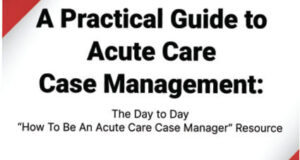
A Focus on the Military Spouse: How to Overcome Barriers to Build a Thriving Professional Career in Social Work
While there is increasing awareness of the important role professional social workers and social work case managers play in serving veterans and active duty military members, less attention is paid to the unique challenges military spouses face when they themselves pursue careers in these professional roles. The ability to leverage skills, knowledge, experience and resources to support one’s own professional development is essential to achieving personal and professional fulfillment. Building a thriving career as a professional social worker is possible when military spouses are armed with the right information, tools and aspirations.
MILITARY SPOUSE EDUCATION AND EMPLOYMENT STATISTICS AT A GLANCE
According to Military OneSource (2023) reporting on the 2021 Department of Defense [DOD] Survey of Active Duty Spouses:
- 62% of military spouses have attained a college degree, including 31% having earned a four-year degree and 18% having earned an advanced professional degree;
- The civilian spouse unemployment rate is 21%, unchanged from the 2015 survey;
- 62% of military spouses are employed within their area of education or training;
- 34% of military spouses work in occupations that require licenses; and,
- 40% of military spouses work for employers who offer remote work.
FREQUENT RELOCATION AND SOCIAL WORK LICENSURE CONSIDERATIONS
While there are limited published details about active duty military spouses who hold advanced degrees and serve in roles that require occupational licensure such as clinical social work and case management, available research suggests that those with advance degrees are most impacted by higher rates of unemployment and underemployment than their civilian counterparts (DaLomba et al., 2021).
This impact is tied to the well-established fact that while some military families may have the good fortune of maintaining stability at one duty station for seven years or longer, it is much more common for military families to move at least every three years (United Service Organizations, Inc. [USO], 2018). Given the frequency of relocations military families face, spouses holding occupational licenses are also met with significant barriers when attempting to transfer their licenses from state to state, resulting in employment gaps and return to workforce delays (U.S. Department of Labor, n.d.). Notwithstanding the frequency of these moves, military families also face uncertainty over moving to undesirable or low-opportunity geographic locations, which poses additional barriers for military spouses to consistently advance in their careers. In fact, some military spouses report experiencing discrimination in the job market, finding that prospective employers are concerned about frequent turnover due to anticipated military family obligations (USO, 2018).
Even where licensed social work military spouses secure remote work opportunities that may offer more portability and stability in their careers, they must still consider the impacts of state licensure to practice remotely when they are serving clients or patients physically located in states other than where the military spouse resides. This can very easily result in the need to carry occupational licenses in more than one state at a time, which is both time-consuming and expensive (National Association of Social Workers [NASW], 2020).
SOCIAL WORK LICENSURE RELIEF PROGRAMS
In recognition of the challenges social work licensure may pose during frequent relocation, there are a number of active and in-process relief strategies available to military spouses. This includes military spouse license reimbursement programs, the Military Spouse Licensing Relief Act of 2023 and state licensure reciprocity including the Interstate Licensure Compact for Social Work. All military spouses affected by social work licensing challenges should consider the following strategies to ease transitions and maximize employment opportunities throughout their career.
MILITARY SPOUSE LICENSE REIMBURSEMENT SUPPORT
The 2018 National Defense Authorization Act allows each service branch to reimburse spouses up to $1,000 for re-licensure and certification costs resulting from relocations or permanent change in station (PCS) moves (Military OneSource, 2022). To find out how to take advantage of these supportive benefits, affected military spouses are encouraged to visit https://www.militaryonesource.mil/education-employment/seco/transferring-your-professional-license-what-s-involved/.
MILITARY SPOUSE LICENSING RELIEF ACT OF 2023
The Military Spouse Licensing Relief Act of 2023, an amendment to the Servicemembers Civil Relief Act (SCRA), was announced in April 2021 and signed into law by President Joe Biden on January 5, 2023 (Kaufmann, n.d.). The law supports the ease of occupational license transfers between states, for moves precipitated by military orders. For state-specific legislation, affected military spouses are encouraged to visit https://www.dol.gov/agencies/vets/veterans/military-spouses/license-recognition.
INTERSTATE LICENSURE COMPACT FOR SOCIAL WORK
The Interstate Licensure Compact for Social Work seeks to eliminate barriers to professional practice and access to care by easing the achievement of licensure across state lines (NASW, 2023). It’s important to note that in recognition of the impacts to military spouses, the Department of Defense (DOD) is one of the primary stakeholders and funders behind the creation of the interstate licensure compact for social work (Butts & Goodenough, 2023). For the most up-to-date information on the Interstate Compact for Social Work, visit https://swcompact.org/.
MILITARY SPOUSE PROFESSIONAL DEVELOPMENT BEST PRACTICES
Aside from licensure considerations and relief programs, military spouses in the field of social work or social work case management should also consider professional development strategies to support their career growth and marketability. At the top of this list of best practices are strategic investments in personal branding and active engagement in professional organizations.
PERSONAL BRANDING
Personal branding is the way you market yourself and your professional values, skills, experience, expertise and goals; it is important to make your brand an authentic representation of you—your values, passions, skills and goals (Military OneSource, n.d.-a). This may be particularly unnatural for those in the social work profession, who are often taught to remain in the background while supporting and uplifting others. But, personal branding and crafting of one’s resume and social media profiles are important aspects of ensuring access to opportunities to attain professional growth over time. This includes building a record of your expertise, flexing your networking muscles, securing references and seeking opportunities for mentorship.
PROFESSIONAL ASSOCIATION MEMBERSHIP & ENGAGEMENT
Finally, membership and active engagement in professional associations are essential to building a thriving professional career. Especially for military spouses who face frequent relocation, professional association membership can provide a stable connection to their career field in the face of their mobility requirements (Military OneSource, n.d.-b). Professional association memberships provide opportunities to network, collaborate and contribute to the growth of one’s profession while simultaneously sparking growth and career attainment for those who choose to actively engage.
When all is said and done, while the barriers to steady employment and career progression are significant for military spouses in the field of social work and social work case management, there is hope for those who seek to make their mark and pursue this valuable and rewarding career path. Staying the course, investing in one’s own professional development and maintaining acute awareness about how and when to utilize available resources and supports can make all the difference.
REFERENCES
Butts, S. C. & Goodenough, K. E. (2023, February 14). Interstate licensing compact in development for social work profession. CMSA Today. https://cmsatoday.com/2023/02/14/interstate-licensing-compact-in-development-for-social-work-profession/.
DaLomba, E., Greer, M. J., Cruz, E., Harris, A., King, C., Laurel, L., McCuaig, T., & Wilder, R. (2021). The experiences of active duty military spouses with advanced degrees in maintaining and advancing their careers. Work, 68(2), 387—398. https://doi.org/10.3233/WOR-203380.
Kaufmann, R. L. (n.d.). Military spouse licensing act: Latest updates on SCRA benefits for spouses. Servicemembers Civil Relief Act Centralized Verification Service. https://www.servicememberscivilreliefact.com/blog/military-spouse-licensing-relief-act/.
Military OneSource. (n.d.-a). Building your personal brand. https://myseco.militaryonesource.mil/portal/article/personal-branding.
Military OneSource. (n.d.-b). The value of professional associations. https://myseco.militaryonesource.mil/portal/article/the-value-of-professional-associations.
Military OneSource. (2022, March 25). Transferring your professional license: What’s involved? https://www.militaryonesource.mil/education-employment/seco/transferring-your-professional-license-what-s-involved/.
Military OneSource. (2023). The military spouse at a glance: 2021 DOD survey of active duty spouses. https://download.militaryonesource.mil/12038/MOS/Infographic/2021-survey-of-active-duty-spouses.pdf.
National Association of Social Workers. (2020, March). Telemental health: Legal considerations for social workers. https://www.socialworkers.org/About/Legal/HIPAA-Help-For-Social-Workers/Telemental-Health.
National Association of Social Workers. (2023, March). Interstate licensure compact. https://www.socialworkers.org/Advocacy/Interstate-Licensure-Compact-for-Social-Work.
United Service Organizations, Inc. (2018, November). The backbone of our military: Perceptions and experiences from modern military spouses. https://www.uso.org/document/143.
Women’s Bureau. (n.d.). Military spouses fact sheet. U.S. Department of Labor. https://www.dol.gov/agencies/vets/veterans/military-spouses.
Image credit: DRAZEN ZIGIC/SHUTTERSTOCK.COM





